Even though at this very moment, right outside my window, there’s snow falling on a grove of other trees, I’m still moved by the recent loss of my own largest tree.
(I wrote about it two weeks ago HERE.)
Knowing that its descendants are scattered from Brooklyn to Maine helps a lot, too.
Indeed, this experience embodies the theme of this month’s “Yes, And…” meditation HERE—an invitation to accept loss and then move beyond it.
Oftentimes, however, that’s easier said than done.
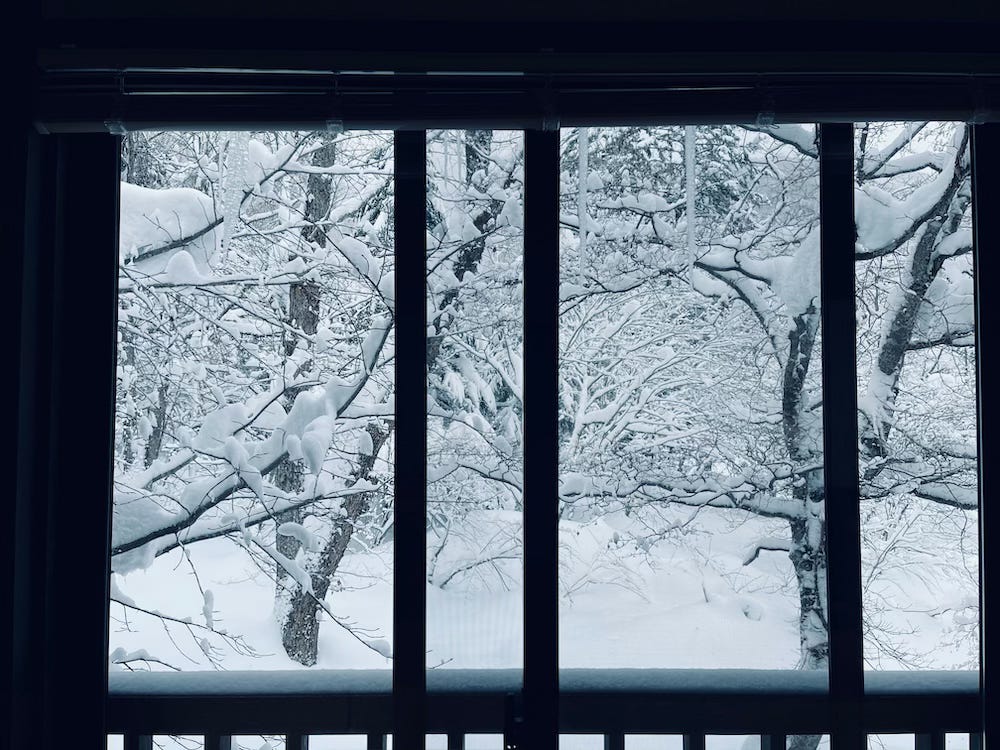
During low moments, I take great comfort in this:
The first song ever broadcast on the radio is widely believed to be Ombra mai fu, an aria from Handel’s opera Serse (or Xerxes).
On Christmas Eve in 1906, Reginald Fessenden, a Canadian-American inventor, played it—along with a reading from the Bible and his own live violin performance of O Holy Night.
The aria is sung at the opening of the opera by the Persian king Serse (aka Xerxes) and, surprisingly, it’s a hymn of praise to the shade of a beloved tree from his past.
There’s a treasure trove of heartfelt recordings of the aria, but perhaps my favorite is by the amazing Lorraine Hunt Lieberson, which you can listen to HERE or click the image below.
Italian: English Translation: Ombra mai fu Never was there a shade di vegetabile of any plant cara ed amabile, so dear and lovely, soave più. or so sweet.
Given that this is considered the first AM radio broadcast, it’s also the first to leave Earth’s orbit.
By extension, if there are aliens out there listening, it will be the first sound they’ll hear from us.
Please give it a listen; I think you’ll agree it’s a splendid introduction to humanity.
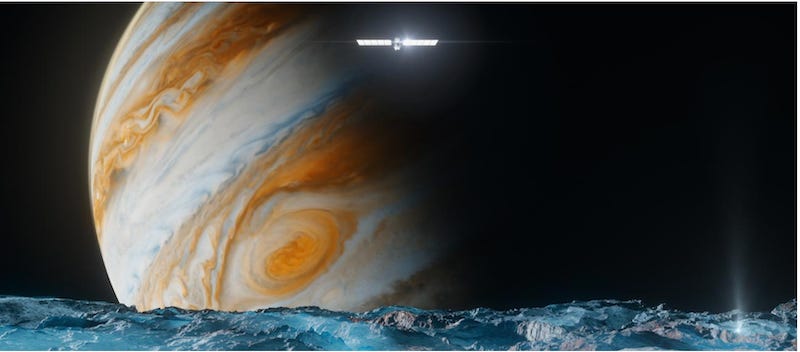
Another reason this aria was on my mind is that I stumbled upon a poem by our current poet laureate, Ada Limón, that I’ll share in just a bit.
Ada Limón was commissioned by NASA to write an original poem for the Europa Clipper mission.
Amid the constant flurry of news, I somehow missed that on October 14th of this year, at 12:06 p.m. EDT, the craft was successfully launched.
It’s heading to Jupiter’s moon Europa, which is believed to have a vast subsurface ocean beneath its icy crust—making it one of the most promising places in the solar system for extraterrestrial life.
Arriving sometime in 2030, the spacecraft not only has an Ada Limón poem etched on a metal plate, but also since NASA’s “Message in a Bottle” campaign invited the public to submit their names, those were etched onto microchips mounted alongside it.
But for a moment, I want to return to a few more earthbound thoughts.
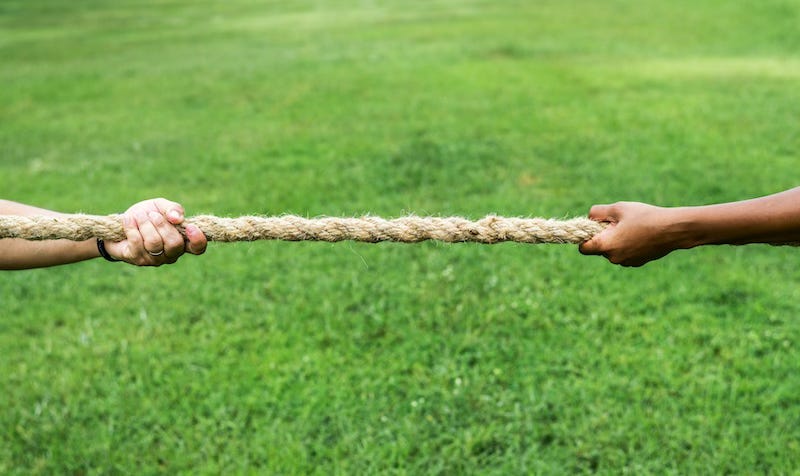
By far the most common question I’ve been asked in all my online courses relates to the “Yes, And…” theme.
It’s always some variation of reluctance, or even an outright refusal, to embrace acceptance as the first step in transformation.
I fully acknowledge there is something counterintuitive about this truth.
The rational mind rebels against the notion, believing that acceptance can only lead to entrenchment, even amplification of the undesired state.
While citing acceptance as the first step in all 12-Step programs helps, I find it even more powerful to give two physical examples: Quicksand and Chinese finger traps.
Re: the latter, the classic woven bamboo design of those traps provides a simple yet brilliant demonstration of counterintuitive physics: pulling makes it tighter, but releasing allows you to escape.
The same is true for quicksand: escape can only come from relaxing and moving strategically rather than panicking and forcing your way out.
In other words….
You must start with “Yes,”
fully acknowledging reality
before you can get to the “And…”
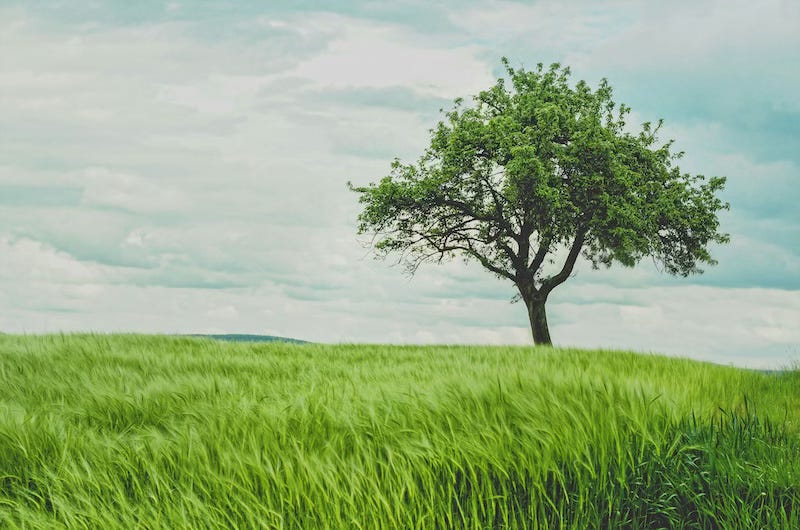
Here’s that poem I promised by Ada Limón.
In Oprah’s magazine, she revealed that she wrote it “after a particularly hard winter” and that “it came out all at once, like listening to a song you’ve heard before.”
Again, it’s not the one on the Europa Clipper, but here it is:
Instructions on Not Giving Up
More than the fuchsia funnels breaking out
of the crabapple tree, more than the neighbor’s
almost obscene display of cherry limbs shoving
their cotton candy-colored blossoms to the slate
sky of Spring rains, it’s the greening of the trees
that really gets to me. When all the shock of white
and taffy, the world’s baubles and trinkets, leave
the pavement strewn with the confetti of aftermath,
the leaves come. Patient, plodding, a green skin
growing over whatever winter did to us, a return
to the strange idea of continuous living despite
the mess of us, the hurt, the empty. Fine then,
I’ll take it, the tree seems to say, a new slick leaf
unfurling like a fist to an open palm, I’ll take it all.
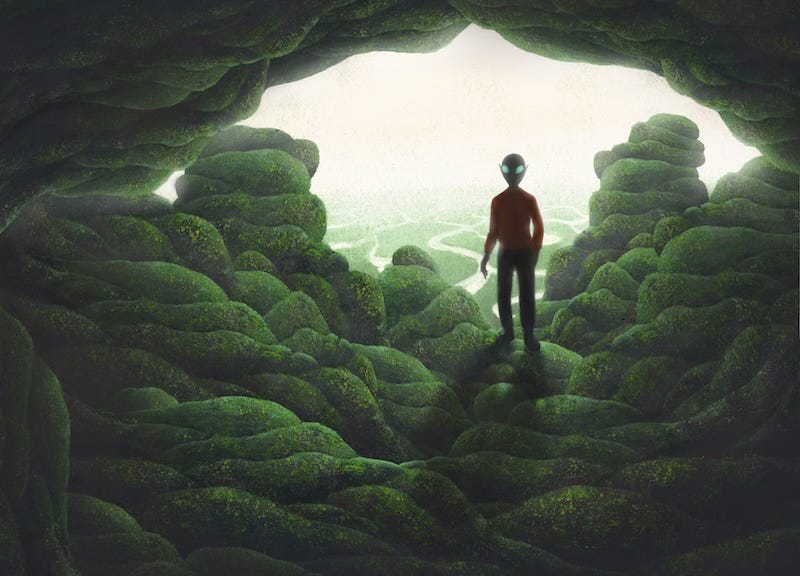
Back to that aria…
Of course right now it’s all entirely theoretical, but there’s some debate whether the first radio signals strong enough to reach another civilization would actually be from the 1930s or 1940s.
Thus, the 1936 Berlin Olympics, military radar signals from World War II, or even The Lone Ranger might be our first interstellar impressions.
Growing up on sci-fi, I’m convinced anything is possible, but I deeply hope that Ombra mai fu arrives first.
After all—alongside dogs—trees might be the best foot we have to put forward.
In that same spirit, Ada Limón writes of her poem that:
I can only hope that
“Instructions on Not Giving Up”
might be just that for someone out there.
I’d like to be more like that tree.
Opening up to the world again,
shaking everything off in the wind,
letting trouble blow through me,
not blowing me over.
Truly, that’s the embodiment of “Yes, And…” and a message we should take to the stars.
Namaste for Now,

